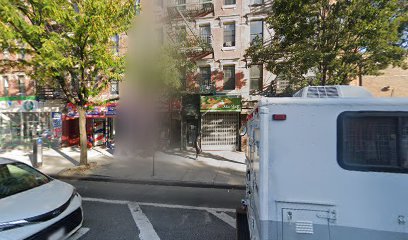By Kenneth Kowald
A photograph of a Great Depression breadline. Two religious institutions in Queens aiding a soup kitchen in Manhattan. Children in Forest Hills helping those in need of food. The new needy. These are what I will be writing about in this column and the next.
The breadline photograph appeared in a recent story in the business section of The New York Times. The facade of the church where the men were waiting looked familiar to me.
A longtime friend of mine from my Army days, the Rev. Peter Amadeus Fiore, holds a doctorate from London University and is an eminent Milton and Donne scholar. He is now a scholar in residence at Siena College.
I e−mailed Peter, asking if this was St. Francis of Assisi on West 31st Street in Manhattan. He confirmed it was. Then he wrote something that brought home to me once more the depths of the recession we are in.
Since the St. Francis breadline started in 1929, it has never served so many in need as it does these days. Queens residents who work near Pennsylvania Station may see this line every morning, as they pass by or stop in for a service or prayer or meditation.
Each morning at 7 a.m., the Franciscan Brothers head out to the sidewalk in front of the church to greet about 200 men and women who line up for a cup of coffee, sandwiches and pastries. Early commuters may see lines 2 or 3 feet deep, stretching around the corner to Seventh Avenue.
To learn more about the St. Francis breadline, call 212−736−8500 or visit stfrancisnyc.org.
From 10:30 a.m. to 12:30 p.m. each weekday, just a few blocks away, the Holy Apostles Soup Kitchen at Ninth Avenue at 28th Street serves hot meals to guests who dine in the nave of the landmark church. While this may seem like a local event, it is interesting to note that at least two organizations in Queens — Grace Church in Whitestone and Our Lady of Fatima School in Jackson Heights — have donated funds to the soup kitchen, which began in 1982. Hunger knows no boundaries.
HASK, as it is known, has grown to become one of the largest soup kitchens in the country and is the largest in the tri−state area and the Episcopalian Church nationwide.
In 2008, HASK served a record 330,115 meals, far more than ever before, an increase of nearly 9 percent over the previous year. The total number of meals served in all the years is over 6 million. In the history of the soup kitchen, a serving day has never been missed, despite blackouts, blizzards, transit strikes and even a fire in 1990, which destroyed much of the church and its interior.
In addition to the food, HASK offers thousands of counseling sessions each year to help the men and women it serves find shelter, clothing, food pantries, drug and alcohol rehabilitation and employment. It also assists in obtaining public benefits for them.
To learn more about HASK, call 212−924−0167 or visit holyapostlesnyc.org.
Sadly, it is too clear that the lines at St. Francis and Holy Apostles will continue to grow, as those Queens residents who work in the area can see every day.
And needs in Queens are growing, as we will see in the next column.






























